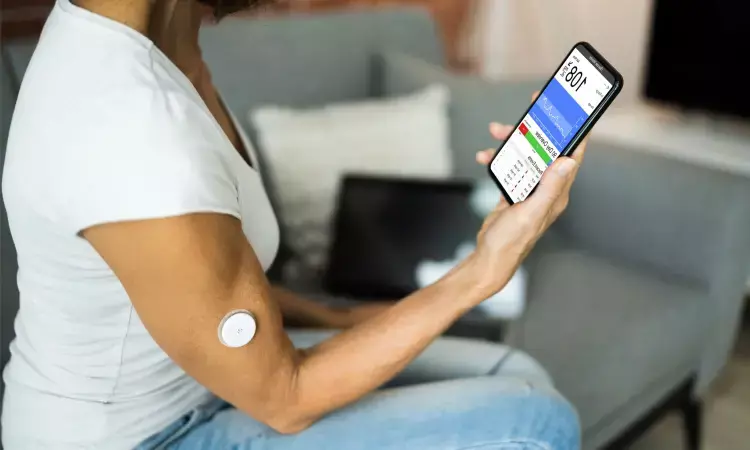- Home
- Medical news & Guidelines
- Anesthesiology
- Cardiology and CTVS
- Critical Care
- Dentistry
- Dermatology
- Diabetes and Endocrinology
- ENT
- Gastroenterology
- Medicine
- Nephrology
- Neurology
- Obstretics-Gynaecology
- Oncology
- Ophthalmology
- Orthopaedics
- Pediatrics-Neonatology
- Psychiatry
- Pulmonology
- Radiology
- Surgery
- Urology
- Laboratory Medicine
- Diet
- Nursing
- Paramedical
- Physiotherapy
- Health news
- Fact Check
- Bone Health Fact Check
- Brain Health Fact Check
- Cancer Related Fact Check
- Child Care Fact Check
- Dental and oral health fact check
- Diabetes and metabolic health fact check
- Diet and Nutrition Fact Check
- Eye and ENT Care Fact Check
- Fitness fact check
- Gut health fact check
- Heart health fact check
- Kidney health fact check
- Medical education fact check
- Men's health fact check
- Respiratory fact check
- Skin and hair care fact check
- Vaccine and Immunization fact check
- Women's health fact check
- AYUSH
- State News
- Andaman and Nicobar Islands
- Andhra Pradesh
- Arunachal Pradesh
- Assam
- Bihar
- Chandigarh
- Chattisgarh
- Dadra and Nagar Haveli
- Daman and Diu
- Delhi
- Goa
- Gujarat
- Haryana
- Himachal Pradesh
- Jammu & Kashmir
- Jharkhand
- Karnataka
- Kerala
- Ladakh
- Lakshadweep
- Madhya Pradesh
- Maharashtra
- Manipur
- Meghalaya
- Mizoram
- Nagaland
- Odisha
- Puducherry
- Punjab
- Rajasthan
- Sikkim
- Tamil Nadu
- Telangana
- Tripura
- Uttar Pradesh
- Uttrakhand
- West Bengal
- Medical Education
- Industry
Continuous glucose monitor clinically effective tool for individuals with diabetes on peritoneal dialysis: A Report

Hong Kong: A report study published in Diabetes Care showed satisfactory performance of a real-time CGM sensor in peritoneal dialysis (PD) patients with diabetes in detecting asymptomatic glucose excursions.
The study by Jack KC Ng and team, a single-centre, prospective, open-label study of Guardian Connect with Guardian Sensor 3, included 30 participants with diabetes undergoing continuous ambulatory PD (CAPD) enrolled between 8 March 2021 and 15 August 2022. The researchers compared Medtronic Guardian Sensor 3 with the gold standard reference Yellow Spring Instrument [YSI] glucose analyzer to assess CGM accuracy to capture a wide range of glucose levels with diet/insulin manipulation.
- Out of 30 participants,29 completed the in-clinic session, and One participant was withdrawn before the YSI session due to repeated sensor failure.
- The average age was 64.7 ± 5.6 years, 77% were men, diabetes duration was 17.6 ± 8.0 years, HbA1c was 7.1 ± 0.9%, and CAPD duration was 16.2 ± 19.5 months.
- Nine hundred sixty-one pairs of CGM-plasma YSI and 259 pairs of CGM-SMBG values were collected.
- Overall, the mean absolute relative difference (MARD) of CGM-plasma YSI pairs was 10.4% (95% CI 9.6, 11.2), and the MARD for CGM-SMBG pairs was 9.3% (95% CI 8.3, 10.3); 81.3% of readings were within %15/15 of YSI values in the full glycaemic range.
- The sensor's accuracy was not influenced by acidosis, urea concentration, and volume overload.
In addition to these findings, the researchers noted that the sample size was relatively small and did not perform head-to-head comparisons versus other sensors or against an age- or sex-matched non-ESKD control group.
“Medtronic Guardian Sensor 3 has shown more accurate and reliable across a wide range of glucose levels in PD patients with diabetes; further research will investigate whether optimization of CGM-based metrics will improve clinical outcomes in PD”, Jack KC added.
Reference:
Jack KC, Ling J et al. Evaluation of a Fourth-Generation Subcutaneous Real-Time Continuous Glucose Monitor (CGM) in Individuals with Diabetes on Peritoneal Dialysis. Diabetes Care 2023;46(6):1191–1195.
Dr Kamal Kant Kohli-MBBS, DTCD- a chest specialist with more than 30 years of practice and a flair for writing clinical articles, Dr Kamal Kant Kohli joined Medical Dialogues as a Chief Editor of Medical News. Besides writing articles, as an editor, he proofreads and verifies all the medical content published on Medical Dialogues including those coming from journals, studies,medical conferences,guidelines etc. Email: drkohli@medicaldialogues.in. Contact no. 011-43720751


